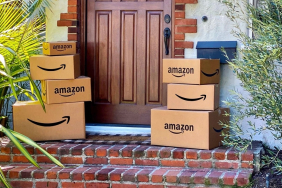On Monday, Meta Platforms CEO Mark Zuckerberg appeared in a critical trial in Washington, where U.S. antitrust regulators are arguing that the company invested billions to acquire Instagram and WhatsApp in an effort to eliminate competition for Facebook.
The Federal Trade Commission (FTC) is pushing to compel Meta to divest itself of Instagram and WhatsApp, putting to the test former President Donald Trump’s commitments to tackle the influence of Big Tech while posing a significant challenge to a business that reportedly derives approximately half of its advertising revenue in the U.S. from Instagram.
Dressed in a dark suit with a light blue tie, Zuckerberg answered questions in a composed manner, aiming to counter allegations that Meta’s purchases of these platforms a decade ago were intended to suppress competition in the social media landscape.
Zuckerberg stated that while connecting with friends and family is essential on the platforms, it is not the sole focus, as users also seek to discover a broader range of content.
He mentioned that a strategic shift in 2018, which prioritized Facebook content shared by acquaintances over public video posts, misjudged the evolving preferences of users who increasingly share content through private messages rather than updating their feeds.
“I think we misunderstood how social engagement online was evolving,” he explained. “People kept engaging with more content that wasn’t just about what their friends were doing.”
Zuckerberg estimated that about 20 percent of content on Facebook and 10 percent on Instagram is generated by users’ friends, in contrast to accounts followed based on individual interests.
Competition with TikTok
The FTC has referenced emails in which Zuckerberg suggested acquiring Instagram to mitigate the risk of it becoming a competitor to Facebook, as well as expressing concerns that WhatsApp’s encrypted messaging could evolve into a social networking platform.
Meta has contended that its acquisitions of Instagram in 2012 and WhatsApp in 2014 have ultimately benefited users. The company claims that Zuckerberg’s earlier comments are outdated given the current competition from TikTok, YouTube, and Apple’s messaging service.
User behavior on social media and the interchangeability of different platforms will be central to the trial. Meta intends to argue that a surge in traffic to Instagram and Facebook during TikTok’s temporary shutdown in January indicates substantial competition.
The FTC asserts that Meta possesses a monopoly over platforms used for sharing content with friends and family, citing Snap’s Snapchat and the smaller, privacy-oriented MeWe as its main U.S. competitors.
In contrast, the FTC argues that platforms where users share content with strangers based on shared interests, such as TikTok, YouTube, Reddit, and X, should not be considered interchangeable.
U.S. District Judge James Boasberg pointed out in a ruling last November that the FTC faces significant challenges in proving its claims during the trial.
The proceedings could extend into July. Should the FTC prevail, it must additionally demonstrate that actions like requiring Meta to divest Instagram or WhatsApp would enhance competition.
Shedding Instagram could have dire consequences for Meta’s financial performance. While the company does not disclose revenue figures for individual apps, advertising research firm eMarketer projected that Instagram will generate approximately $37.13 billion this year, representing a little over half of Meta’s U.S. advertising income.
Additionally, Instagram reportedly generates higher revenue per user than any other social media platform, including Facebook, according to eMarketer’s analysis.
Though WhatsApp contributes minimally to Meta’s overall revenue currently, it remains the company’s most widely used app and is increasing efforts to monetize features such as chatbots. Zuckerberg has indicated that services focused on “business messaging” are likely to fuel the next phase of the company’s growth.
Trump v/s Big Tech
This case is part of the broader scrutiny on Big Tech that began during Trump’s initial term in office.
Meta has been actively reaching out to Trump since his election, softening content moderation practices that Republicans criticized as censorship, and contributing $1 million to his inauguration. Zuckerberg has also made several visits to the White House in recent weeks.
Other major tech leaders, including Amazon, Apple, and Alphabet’s Google, are also facing antitrust challenges from U.S. regulators.
Several significant tech companies have sought to align with Trump since his election, including rolling back diversity initiatives and establishing direct communications with the White House.
However, this shift has not translated into a reduction in the ongoing antitrust suits.
© Thomson Reuters 2025
(This story has not been edited by NDTV staff and is auto-generated from a syndicated feed.)






